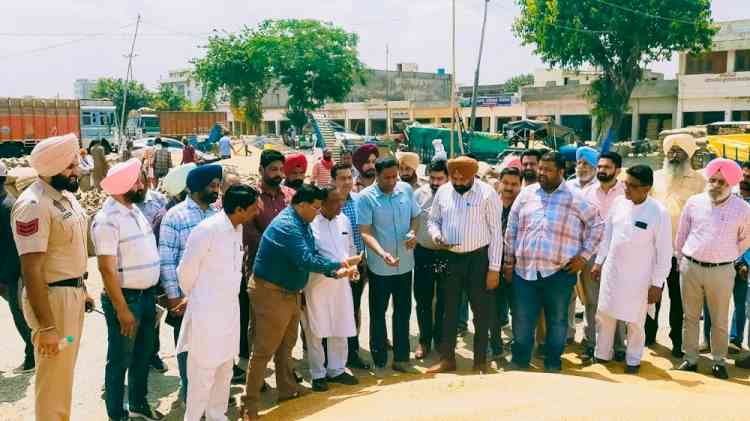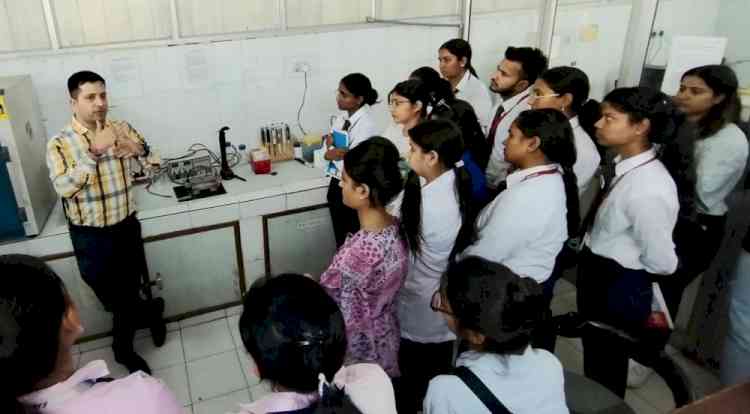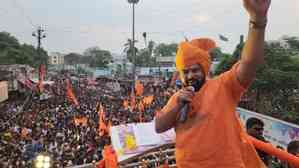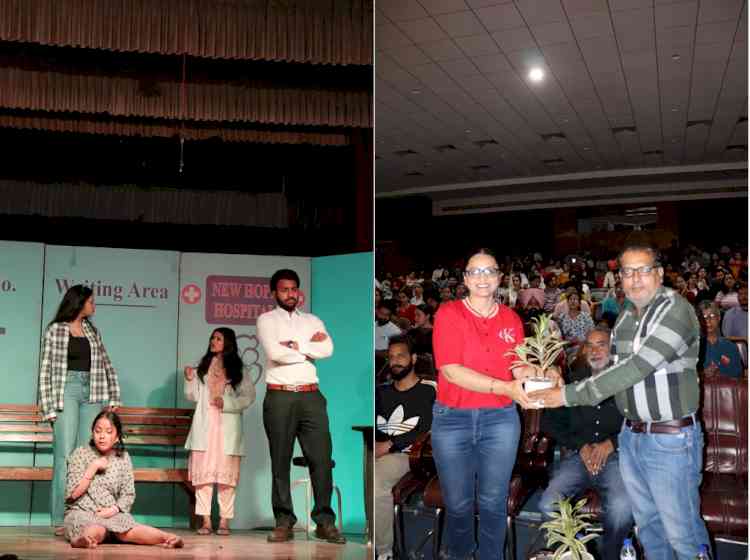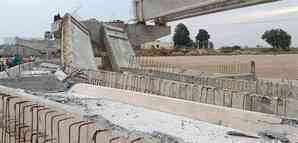Workshop cum Review meeting of Experiential Learning Programme (ELP) modules
Author(s): City Air NewsADG Dr PS Pandey addressing the workshop cum review meeting. 120 participants from 56 agricultural universities attending the workshop A two-day workshop cum review meeting of the Experiential Learning Programme...


ADG Dr PS Pandey addressing the workshop cum review meeting.
120 participants from 56 agricultural universities attending the workshop
A two-day workshop cum review meeting of the Experiential Learning Programme (ELP) modules of all agricultural universities in the country commenced at the Dr YS Parmar University of Horticulture and Forestry (UHF), Nauni. The meeting is being organized by the education division of the Indian Council of Agricultural Research (ICAR) in which over 120 representatives from 56 State and Central Universities, and Central Institutes in the country are taking part.
Dr HC Sharma, UHF Vice-Chancellor was the Chief Guest while Dr PS Pandey, ICAR ADG (Education Planning and Home Science) was the Guest of Honour for the inaugural function. During the two days, the representatives of different universities will present the status report of the ELP modules running in their universities so that the successful models can be promoted at other places as well. At the same time, deliberations on how to revive the modules, which were not performing well, will also be held.
In his address, Dr HC Sharma, spoke about the importance of the ELP modules in building the entrepreneurship acumen and confidence of the agricultural graduates. He suggested that the programme should be made a little flexible where the students could choose the area where they would like to work, and the option of interning with the industry during this time should also be explored. The students should also prepare a report/ dissertation on the work carried out during the period on the pattern of engineering and medical courses.
While crediting the ICAR admission quota system with improving the diversity of campuses, Dr Sharma suggested that a similar policy should also be adopted for faculty as well.
While speaking about the implementing the ‘Student Ready’ programme, Dr Pandey said, “ELP Modules are an integral part of ‘Student Ready’ programme. The one-year practical work exposure has enabled to develop competence in our agricultural students to fulfil the industry standards. The main aim was to develop quality Human Resource for the agricultural sector through entrepreneurial development and hands-on training”.
He shared with the gathering that over 441 ELP modules worth over Rs. 250 crores have been established by ICAR in the country. In addition to these, several more have been set up through support from the state governments. With skills becoming an important part of each profession, ICAR is also studying the possibility of linking the ELP with the Agriculture Skills Council of India.
During the meeting, the ELP modules operating at UHF were highly appreciated by the delegates. The university is currently running seven modules: Commercial Floriculture; Commercial Horticulture; Processing of Fruits, Vegetables and Value Addition; Forest Products; Silviculture; Mushroom cultivation and Beekeeping. All programmes of the university are running successfully and profits are being shared with the students.
Dr JN Sharma, UHF Director Research, Dr VS Thakur, Director of Extension Education, Dr Rakesh Gupta Dear College of Horticulture, Dr PK Mahajan Dean College of Forestry and Dr Nidhi Verma, Principal Scientist at ICAR were some of the other dignitaries present at the meeting.
What is ELP
Experiential learning is a philosophy and methodology in which educators purposefully engage with learners in direct experience and focused reflection in order to increase knowledge, develop skills, entrepreneurship, and inculcate values. ELP is a business curriculum-related endeavour, which is interactive. ELP is for building skills in project development and execution, decision-making, individual and team coordination, approach to problem-solving, accounting, quality control, marketing and resolving conflicts, etc. The programme has an end-to-end approach. Carefully calibrated activities move participants to explore and discover their own potential and in the process, provide analytical skills and business acumen. Both activities and facilitation play a critical role in enhancing team performance. ELP thus provides the students with an excellent opportunity to develop analytical and entrepreneurial skills, and knowledge through meaningful hands-on experience, confidence in their ability to design and execute project work. The profits earned in each ELP module is shared with the students.

 cityairnews
cityairnews 






